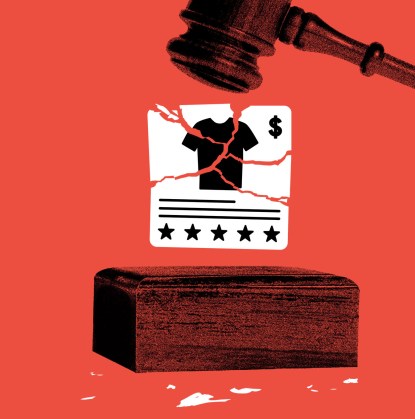US Government Pushes For Forced Sale Of Google's Ad Tech Assets

Table of Contents
The DOJ's Case Against Google's Ad Tech Dominance
The Department of Justice's antitrust lawsuit against Google centers on its alleged anti-competitive behavior within the digital advertising market. The core of the argument revolves around Google's dominance in various ad tech tools, including Google Ads, Ad Manager, and Ad Exchange. The DOJ contends that these tools, working in concert, create an insurmountable barrier to entry for competitors, effectively establishing a monopoly.
- Specific Allegations: The DOJ alleges that Google leverages its control over these platforms to manipulate auctions, favoring its own products and disadvantaging rivals. This includes accusations of using its data advantage to unfairly prioritize its own ads, and imposing restrictive contracts on publishers and advertisers.
- Monopoly Creation: The complaint argues that Google's integrated ad tech stack allows it to control the entire process, from ad creation and placement to bidding and reporting. This vertical integration, according to the DOJ, eliminates fair competition and restricts innovation.
- Antitrust Law Violations: The alleged violations center around Section 2 of the Sherman Antitrust Act, which prohibits monopolization and attempts to monopolize commerce. The DOJ claims Google has abused its dominant market position to maintain its monopoly.
- Market Dominance Data: The DOJ is expected to present extensive data illustrating Google's overwhelming market share in key segments of the digital advertising ecosystem, solidifying their argument for market dominance and unfair competition.
Potential Consequences of a Forced Sale
A forced divestiture of Google's ad tech assets would have profound consequences, potentially reshaping the competitive landscape of digital advertising. The ramifications extend far beyond Google itself, impacting advertisers, publishers, and the overall digital economy.
- Impact on Google's Finances: A forced sale would undoubtedly impact Google's revenue and stock price significantly. The ad tech division represents a substantial portion of Google's overall revenue, and its loss would represent a substantial financial blow.
- Reshaped Competitive Landscape: The sale could lead to increased competition and innovation. Breaking up Google's ad tech empire could create opportunities for smaller players to compete more effectively, potentially leading to a more diverse and dynamic digital advertising market. Market fragmentation could, however, create uncertainty in the short term.
- Impact on Advertisers and Publishers: Advertisers and publishers could experience both benefits and challenges. While increased competition might lead to more favorable pricing and services, the transition period could involve uncertainty and adjustments.
- Increased Competition and Innovation (Potential): The long-term potential for increased competition post-divestiture is a key argument for the DOJ's action. A more fragmented market could foster innovation and offer advertisers and publishers more choices and potentially better value.
Google's Defense and Counterarguments
Google has consistently refuted the allegations, maintaining that its practices are competitive and beneficial to consumers. Its defense strategy is likely to focus on several key points.
- Google's Response: Google's official response typically emphasizes the value it brings to users and advertisers through its integrated ad tech platform. They claim to offer a wide range of free services, arguing that their dominance stems from superior innovation and consumer preference.
- Arguments Against Monopolistic Practices: Google will likely argue that the market is far more competitive than the DOJ portrays, highlighting the presence of other significant players in the ad tech space. They'll likely challenge the DOJ's market definition and the methodology used to calculate their market share.
- Consumer Benefits and Innovation: Google will likely stress the benefits to consumers, pointing to the improvements in ad targeting and user experience made possible by their technology.
- Fair Competition Counterarguments: A core element of Google's defense will focus on demonstrating that their actions are in line with fair competition practices and that their success is the result of innovation and meeting consumer demands, not anti-competitive tactics.
Wider Implications for the Digital Advertising Ecosystem
The implications of this case extend far beyond Google, shaping the future of the digital advertising ecosystem and influencing regulatory practices globally.
- Broader Implications for the Digital Advertising Industry: This case sets a significant precedent for the regulation of big tech companies and their dominance in specific market sectors. The outcome could influence future antitrust cases involving other large tech firms.
- Data Privacy and Security: The case raises important questions about data privacy and security within the digital advertising industry. Greater regulatory scrutiny could lead to stricter rules and greater transparency concerning data handling practices.
- Increased Regulation: This case might pave the way for increased regulatory oversight within the digital advertising sector. New laws and regulations could impact ad targeting, data collection, and the overall operational landscape of the digital advertising industry.
- Long-Term Effects on Online Advertising: The long-term impact on the monetization of online content and the sustainability of various digital publishing models is a crucial aspect to consider. The potential restructuring of the advertising industry might require publishers to adapt to new revenue models.
Conclusion
The US government's push for a forced sale of Google's ad tech assets represents a watershed moment in the ongoing debate about the influence of powerful tech companies and the regulation of the digital advertising market. The potential outcomes are far-reaching, not only for Google but for advertisers, publishers, and the entire digital ecosystem. The resolution of this legal battle will likely set precedents for future antitrust actions and fundamentally reshape the future of online advertising.
Call to Action: Stay updated on the unfolding developments in this landmark case concerning the potential forced sale of Google's ad tech assets. Follow our ongoing coverage for in-depth analysis and insights into the evolving landscape of digital advertising.

Featured Posts
-
 Celtics Vs Cavaliers Game Prediction Who Will Win
May 07, 2025
Celtics Vs Cavaliers Game Prediction Who Will Win
May 07, 2025 -
 5880 Rally Projected Altcoin Poised To Outperform Xrp
May 07, 2025
5880 Rally Projected Altcoin Poised To Outperform Xrp
May 07, 2025 -
 Who Wants To Be A Millionaire Fans React To Slow Answer On Simple Question
May 07, 2025
Who Wants To Be A Millionaire Fans React To Slow Answer On Simple Question
May 07, 2025 -
 Rihanna Reveals Baby No 3 At The Met Gala 2023
May 07, 2025
Rihanna Reveals Baby No 3 At The Met Gala 2023
May 07, 2025 -
 One Le Chateau Et Le Lioran Votre Escapade Ideale
May 07, 2025
One Le Chateau Et Le Lioran Votre Escapade Ideale
May 07, 2025
